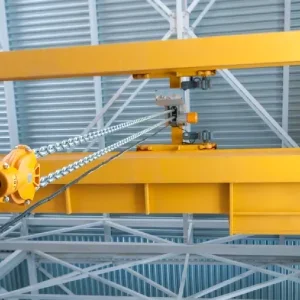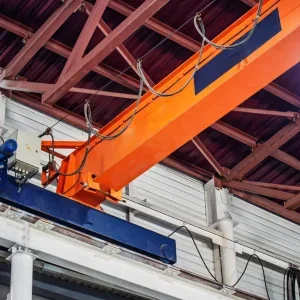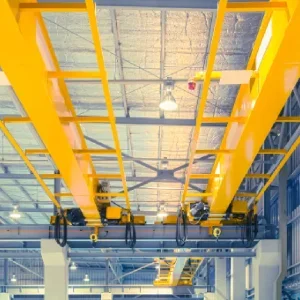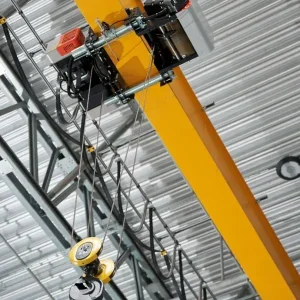Columbus McKinnon has grown at a phenomenal pace, increasing its turnover from $130m in 1993 to $735m for the year to March 1999. This growth has been mainly achieved through a whole string of acquisitions (see Shopping spree, issue five, p29) including the 1996 takeovers of Yale and Lift-Tech.
However, that growth has now stalled. Turnover crept up imperceptibly to $736m in the last financial year. If the company is to justify splashing out all that shareholders’ money on the acquisitions, it is now time for the CM management to demonstrate that it can add value. Therefore the success of its CraneMart strategy is crucial.
Put simply, the CraneMart concept is to sign up fully qualified crane builders and service companies as partners, get them to use Columbus McKinnon product by supplying it at a preferential rate, and so increase sales.
CraneMart outlets might be wholly-owned CM subsidiaries, or they might be independent companies working in alliance. Either way, by bringing together a network of shops under a common brand the effect is to create the USA’s first and only nationwide crane builder by franchise (although technically it is not a franchise operation as the CraneMart dealers are not paying for use of the brand).
The first step in the implementation of the CraneMart strategy was the 1998 acquisition of Abell-Howe Crane and the March 1999 acquisition of GL International. GL, one of the largest full service crane builders in North America, was itself formed in 1997 from the merger of southern US industrial crane and hoist company Gaffey with Larco, a Canadian specialist in large, engineered cranes operating throughout North America.
Columbus McKinnon’s roots are in off-the-shelf products such as chains and regular hoists, rather than in crane building or engineered solutions. These acquisitions changed all that.
Through its CraneMart outlets, CM is now involved in the full process.
This is crucial because in the past CM’s customers have been industrial end-users. But increasingly today such companies have outsourced their plant maintenance and engineering functions and they are looking for single organisations that can meet their complete lifting needs. CraneMart is CM’s bid to remain at the heart of the loop.
CM President and CEO Timothy Tevens says: “CraneMart makes Columbus McKinnon a full service supplier of hoists, cranes and components, and enables us to expand our parts and service offering consistent with the increasing demands of our end-user customers”.
CM was already selling more than $7m-worth of hoists and crane components a year to GL before it bought it. Through CraneMart, it thinks it can now increase the flow of CM product through to end-users.
Tevens said: “When we announced the CraneMart concept last year, our intention was to create a source for high-quality design and maintenance in the overhead crane industry, and that’s what the CraneMart network will now provide.” The CraneMart operation took time to get into place and gather momentum. Appropriate partners had to be found. Now, however, CM has announced the official launch of CraneMart as “a network of certified, participating full-service crane builders providing integrated service to end users.” So far, it has 39 dealers at 79 locations across the USA.
Gaffey in Texas is the only CraneMart operation that is actually owned by CM, although it is not hard to imagine CM taking ownership of, or offering equity support to, any of its partners should such backup be required. Larco is not yet a CraneMart outlet, but Canada is expected to be the first port of call in the push for growth internationally.
The CraneMart initiative is being managed by CM’s Yale/Lift-Tech sales division. Director of sales and marketing Don Herald says: “We are seeking full service dealers in select locations that meet CraneMart’s high standards of quality, customer service and reliability.” CraneMart dealers must have design, manufacturing, installation, repair and maintenance capabilities. They must be prepared to hold an extensive inventory of parts and product, and they must be prepared to be on call for emergency service 24 hours a day.
In return CM offers support in the form of full product lines and ongoing, in-depth training.






